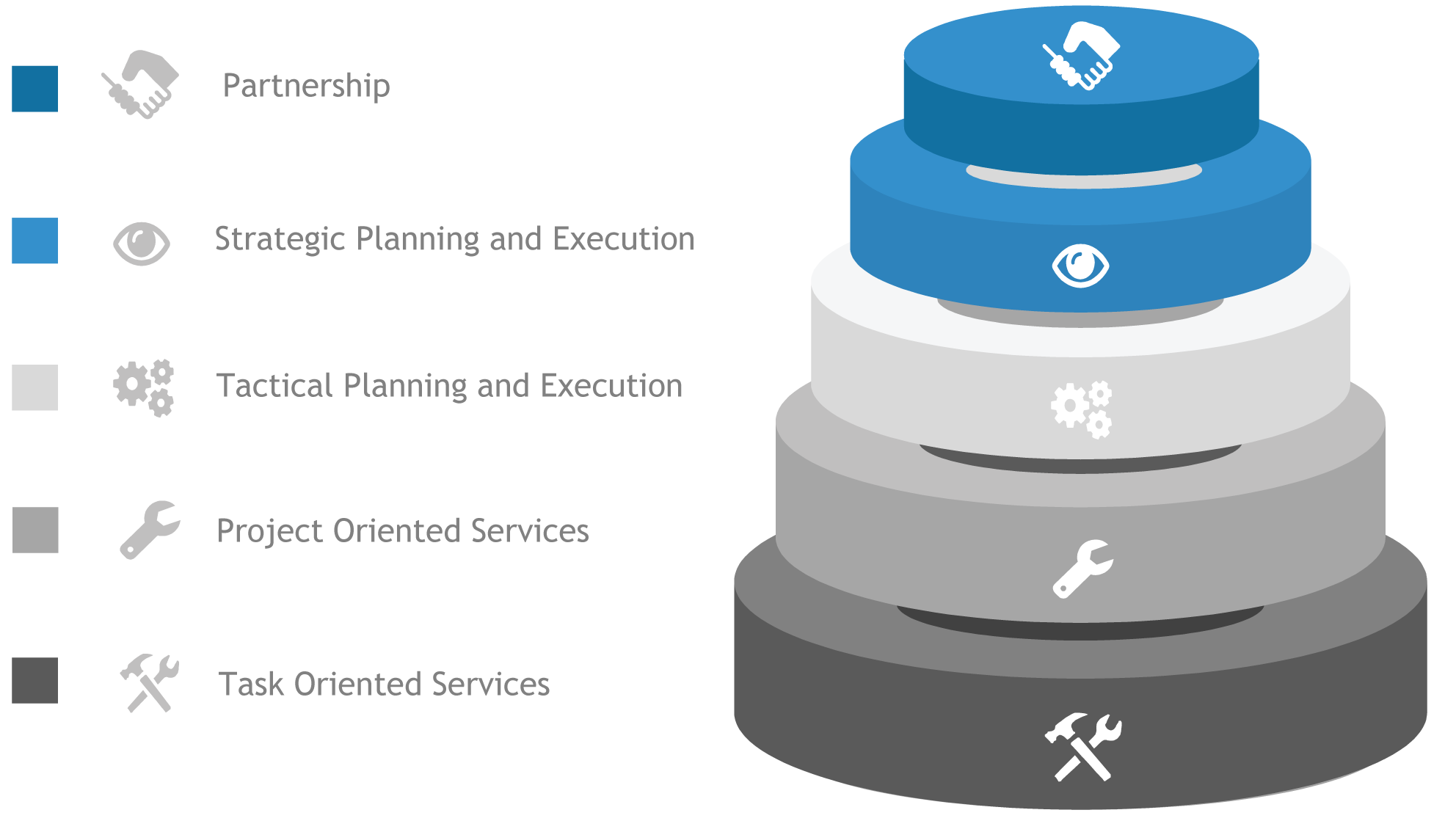
Introduction
As innovation, research and science are exponentially growing in all directions within the healthcare industry, it is only normal that the outsourcing of Clinical Research Organizations (CROs) is also rapidly growing, resulting in a spike in the numbers of such organizations available to the market. The task of finding and filtering through to the right CRO when conducting a trial is crucial to the overall viability of new drugs and medical devices attempting to obtain approval to penetrate their respective markets. In fact, in a recent webinar discussing criteria in searching for a CRO, the term “marriage” was used repeatedly as the ideal partnership where Sponsor-CRO is a relationship with the intent of being long-term, harmonious and objective-driven, and this relationship starts at the CRO selection stage.
Therefore, it is essential to understand the advantages and disadvantages of each factor determining the potential partnership with a CRO. This whitepaper will serve as a general guideline on the essential attributes a Sponsor should look for when identifying CROs as long-term partners.
Generalist or Specialist CRO?
Just like you do not need to be a nutritionist in order to be a chef, or a mechanic to be an F1 racer; in order to run a clinical trial with efficiency, accuracy and success, you definitely don’t have to be a lab scientist! However, wouldn’t it be ideal for you to find a racer for your Formula 1 team who also has good general knowledge of the inner workings of a race car?
In fact, many CROs will associate with being a Specialised CRO, with their focus in a particular therapeutic area, or a CRO with broader experiences (i.e. a Generalist) in different indications, phases or operational expertise.
A Specialized CRO may have in-house experts and the scientific data on a few therapeutic areas, however with projects repeating themselves, these CROs can slow down drastically their acquisition of knowledge and growth within the CRO industry resulting in a lack of efficiency when conducting a clinical trial.
CROs need to consistently maintain their knowledge of government regulations, site procedures, different and improved methodologies, and all other facets of the ever-changing healthcare industry. For that reason, it is optimal for CROs to specialize in the logistics and execution of conducting a clinical trial as opposed to specializing in the science that is already acquired by the client sponsoring the study. Vantage BioTrials’ business model – since its inception in 2007 – has centered around a generalized expertise of various therapeutic areas, while specializing on operational logistics such as Quality by Design (QbD) strategies, Risk-Based Approaches to Monitoring and process improvement methods to the entire clinical trial lifespan. The results of this approach have repeatedly resulted in an increase of project approvals by regulatory agencies (e.g. FDA, Health Canada, EMA, etc.), overall reduction in project timelines, and even reducing the number of trials needed to be rescued within a Sponsor’s therapeutic program.
You may visit some of Vantage BioTrials’ previous whitepapers that explain in further detail the advantages of the multitude of methods Vantage BioTrials utilizes to remain “Specialized Generalists” in our industry.
Ecosystem of Partnership
Vantage BioTrials focuses on being a specialist in the clinical trial management portion of a trial, however, there are many other important criteria needed to successfully complete the entire project. More generalized CROs tend to quickly change hats by touching on most of the complex roles. Vantage BioTrials developed a methodology to have each of these important roles specialized by creating an ecosystem of strong and trusted partners, experts in their field and sharing the same vision, values, and culture. Each partner within our ecosystem has been carefully selected and has gone through our “From Tasks to Partnership” funnel system.
In other words, as deliverables progress from task-oriented services to full-blown partnerships, the ecosystem of partners has greatly developed, trust between the partners as well as the flow is unified, while still remaining experts and specialists in their specific role within a project.

The observed results from a Sponsor’s perspective are the CRO’s ability to perform international trials by offering expert services which result in flexibility in choosing a full service or an a-la-carte one. It also gives a new perspective in terms of the capabilities that a “small CRO” with a trusted network of partners can achieve when remaining specialized in its role; in fact, the size of a CRO has very little correlation with the chances of success of a clinical trial.
Size, Culture and Values
The size of a CRO can be misleading when shopping for one. In fact, during a recent CRO Selection webinar hosted by Ed Miseta, editor at Life Science Leader, the consensus was that the size of the CRO does not reflect in any way the quality of the service received. However, a much more important factor discussed is the compatibility of the partnership as the dynamic of Sponsor-CRO is one of the most crucial criteria when looking for a CRO fitting the client’s needs.
The lean model adopted by Vantage BioTrials’ team is helpful in having more intimate, closer relationships with Sponsors. This also leads to faster execution, easier conversations, and a less robotic or more genuine experience that generates trust.
Trust is the most important criteria when looking for a CRO as Sponsors need to learn to “let go” from their project and trust their CRO just as you would trust the electrician you hired. This is mainly the reason why having too much science specialization can be counter-productive to the relationship and speed of execution – or in other words, having too many chefs in the kitchen.
Nevertheless, it is the CRO’s duty to communicate properly, give regular updates, share enthusiasm, as well as to be fully transparent when there are red flags and concerns, as communication is key to the overall success of the project. In other words, the values of both companies need to be mutual and shared, and the Sponsor must fully explain the overview of the project, delegate tasks accordingly and the CRO needs to make the Sponsor comfortable by creating solid plans of action showcasing their full engagement to the project.
Having a vision explained, shared, and understood, as well as having aligned values, increases the chances of having matching company cultures and strong long-term harmonious relationships.
Final Thoughts
Today, in order to be successful, a CRO needs to be specialized by becoming experts in their specific role of the clinical trial, while being able to stay generalized in terms of therapeutic areas and types of trials. In addition, building strong trusted relationships with their clients and ecosystem of partners with a mutually shared vision, values, and culture maximizes the chances of success.
Ultimately, a CRO needs to position itself at the center of the clinical trial, obtaining a valuable position in the success of the clinical trial – and a clear Vantage point.
About Vantage BioTrials
Vantage BioTrials is a leading Canadian Contract Research Organization (CRO) that uses innovative clinical trial management strategies for the life science industry with a focus on patient safety & advancing new therapies to market. We offer pharmaceutical, biotech & medical device companies a complete and integrated set of full-service clinical trial management solutions.


